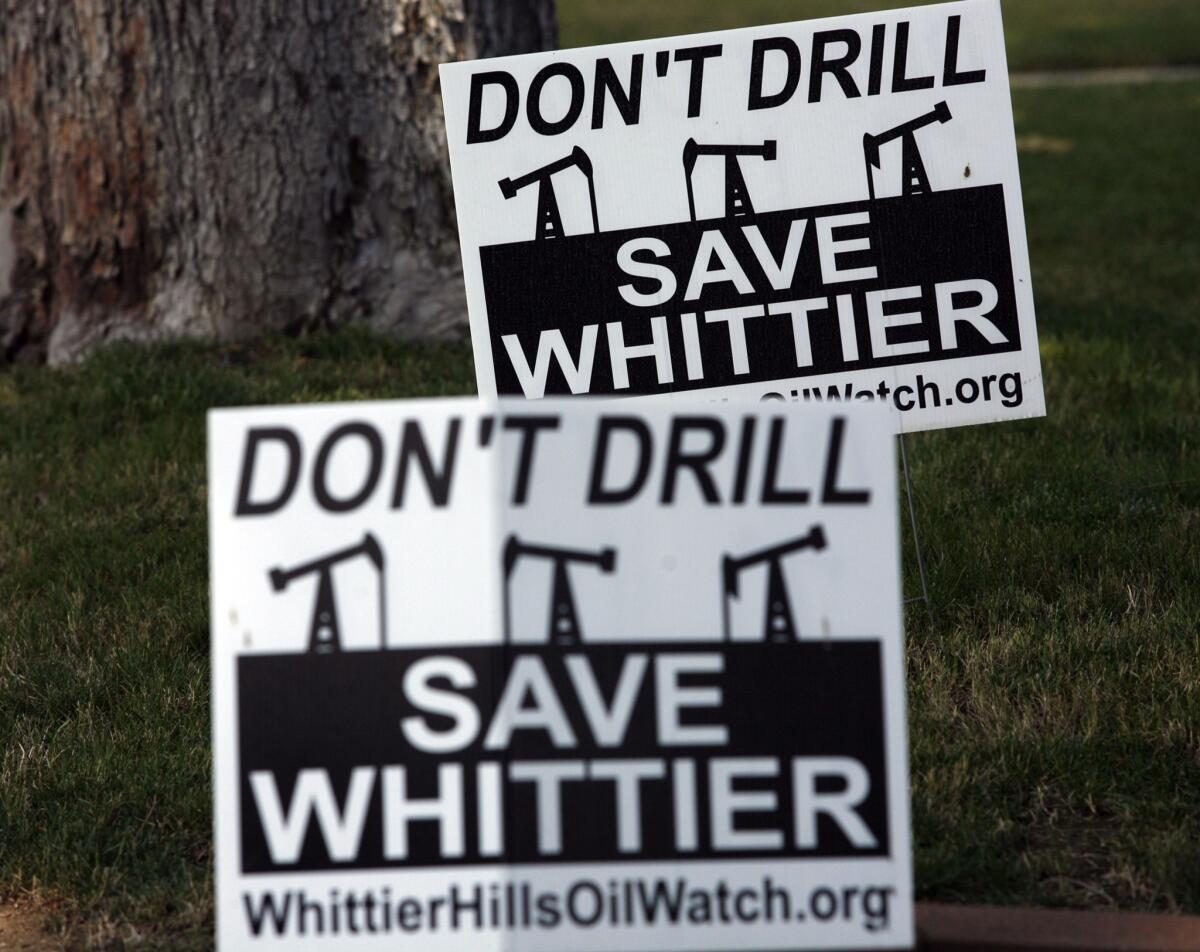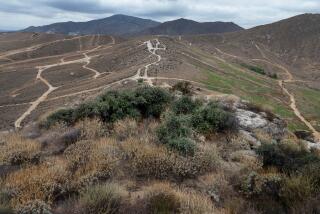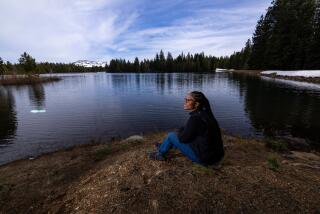Oil-drilling project under Whittier nature preserve rankles opponents

The city of Whittier and a conservation group have reached an agreement to allow a controversial oil-drilling project under a nature preserve, a proposal that immediately drew fire from opponents.
Under the settlement, the Mountains Recreation and Conservation Authority, a regional government entity dedicated to preserving open space and wildlife, is to receive up to $11.25 million a year from the city of Whittier’s royalties from the oil. The authority will use the money to buy and preserve land elsewhere in the county.
The settlement is subject to approval by Los Angeles County supervisors, however, and its prospects at the county level are uncertain. Attorneys for the city and the county and other parties in the dispute are to meet next week with county Superior Court Judge James Chalfant, who approved the settlement pending the county’s review.
The land involved is part of a 1,280-acre parcel of hill country the city bought in 1994 with $17 million from Proposition A funds, which were approved by voters to preserve open space across the county.
The controversy erupted in 2008 when, as oil prices soared past $100 a barrel, the Whittier City Council voted to lease a small portion of the land — seven acres — for 30 years to Matrix Oil Co. of Santa Barbara in exchange for royalties of up to $100 million a year for the city of 90,000 people.
Under terms of the lease, Matrix would use slant-drilling technology to tap an estimated 20 million barrels of recoverable oil. Whittier’s royalties would amount to 30% of the annual gross revenue from the wells.
In 2012, the Mountains Recreation and Conservation Authority filed a lawsuit claiming the lease agreement for an oil and gas exploration violated the intent of Proposition A. The settlement resolves claims in the lawsuit and includes assurances that “fracking” — high-volume, high-pressure hydraulic fracturing — will not be used.
Critics of the project say it is a false bargain for conservationists to allow oil drilling on the preserve under any conditions.
“Nothing is sacred now,” said Roy McKee, president of Whittier Hills Oil Watch. “The next time someone offers voters a bond measure to secure wilderness, there’s no guarantee they won’t turn it into an oil field.”
“We feel saddened, dismayed and duped,” said Shelley Myers, a healthcare executive and environmental activist in Whittier. “We expect the government to uphold what we vote for.”
The city plans to provide 17.1 acres of contiguous land to replace the seven acres taken out of use by the project, Whittier Mayor Bob Henderson said. Oil production could begin later this year.
George Lange, chairman of the conservation authority, described the settlement as “a significant win for the preservation and protection of urban open space and for maintaining safe and accessible parks for the public.”
More to Read
Sign up for Essential California
The most important California stories and recommendations in your inbox every morning.
You may occasionally receive promotional content from the Los Angeles Times.











